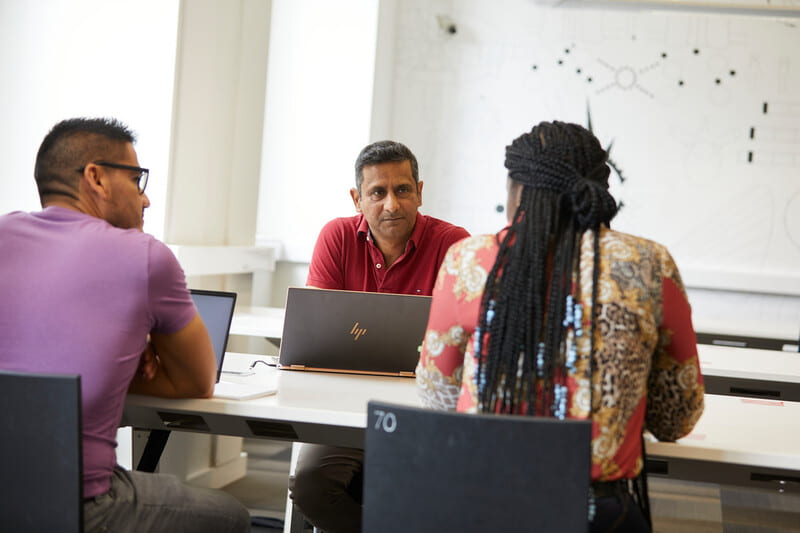 By Lala Ismayilova, School of Education, University of Bristol
By Lala Ismayilova, School of Education, University of Bristol
Greetings! I’m Lala Ismayilova, a graduate of the University of Bristol’s Master’s programme in Educational Leadership and Policy. I’m currently pursuing a Ph.D. in Education, driven by a deep passion to enhance the quality of education through research and advocacy.
During my time at Bristol, I delved into the diverse academic landscape, gaining valuable insights into the challenges faced by international students. Specifically, my research focused on understanding international students’ perceptions of formative feedback and its impact on their learning journeys. Through this research, I explored how cultural differences and educational backgrounds influence students’ engagement with formative feedback.
You can read my first blog on this topic here: Unveiling the feedback secret: Your bridge to academic success
As I continue my academic journey, I’m committed to delving into the importance of formative assessments. Observing a reluctance among new students to engage with formative assignments has only fuelled my determination. I aim to empower students by sharing insights and highlighting the advantages of embracing formative feedback through active participation in such assessments.
Through open discussions about my research and personal experiences, we can better understand the significance of formative assessments in shaping our educational paths. I invite you to join me in uncovering the keys to academic success and embracing the transformative power of formative feedback. Let’s embark on this journey together, making the most of our learning experiences.
After reflecting on my research findings and personal experiences, it’s evident that formative assessments are pivotal in shaping students’ educational journeys. With this understanding in mind, let’s delve deeper into their significance and explore how they can empower students to achieve academic success.
Exploring Formative Assessment

Understanding the Value
Have you ever wondered why international students hesitate to engage with formative assessments? Maybe you’ve heard they’re not mandatory, and investing time in something that doesn’t directly impact your grades might not seem worthwhile. Let’s delve deeper into why formative assessments and feedback are actually more valuable than they might initially appear.
Purpose of Formative Assessments
Firstly, let’s clarify their purpose. Is it about holding you accountable for your work, or is it an opportunity for self-reflection and improvement? The answer lies in understanding your strengths and weaknesses, getting guidance on your academic path, and figuring out how to reach your goals. Remember, these assessments are about grades and your continuous learning and personal growth.
Dear students, especially our international friends, this article aims to shed light on the significance of formative assessments and assessment. We get it; this whole assessment thing might feel unfamiliar. We’re used to thinking that assessments are solely about grades. But what if there’s more to it? What if it’s about continuous learning and feed-forwarding our learning outcomes?
Responsive Teaching Moments
So, what’s the deal with formative assessment and formative feedback? Where do they fit in if they’re not there to hand out grades? Let’s simplify the name; instead of “assessment,” think of it as “responsive teaching moments.” Doesn’t that sound intriguing? It’s not about grading you but guiding and helping you improve your learning outcomes. Now, let’s address the following question: how?
Bridging Cultural Differences
Dive into the cultural differences between Western and Eastern learning approaches. In the West, writing is a means to learn, while many of us from the East are used to learning first and then writing. This shift from traditional to student-centered education might be puzzling, but that’s another topic.
The Role of Educational Institutions
The big question is how educational institutions enhance the learning process. What’s the secret tool? Enter responsive teaching, better known to us as formative assessments. We often downplay their importance, thinking they’re a waste of time since they won’t earn us any marks. But is a mark the only measure of your progress? Even if it is, how will you know you’re on the right track without understanding your strengths and weaknesses?
Tools for Progress
Formative assessments and feedback are your tools for responsive teaching moments. Why “responsive”? It might be better named “responsive teaching” to show its value and encourage students to participate actively. The goal is to get valuable, helpful feedback and a responsive teaching tool that shows you’re on the right track. Imagine this: you write a formative assessment, and your actively responsive teachers provide valuable feedback on your learning journey. It’s a tool for progress, helping you refine your learning abilities and bridge the gap between theory and application.
The Bridge Between Learning and Grading
This assessment serves as the bridge between formative and summative evaluations, where mistakes become steps toward improvement. They’re the link between learning and grading, where you can make mistakes, learn, and receive feedback more valuable than any mark. How can teachers guide you through the intricate learning journey without participating in formative assessments?
Call to Action
Let’s be responsive together, utilising formative assessments to take responsibility for our learning journeys. It’s a win-win situation for everyone. Teachers see improvements in students’ final assignments, educational institutions showcase impressive results, and we, as students, get the guidance we need in this unfamiliar learning environment.

Ultimately, it’s about celebrating every small success, creating a habit of learning, and making our educational journey truly rewarding. Embrace the magic of formative and summative assessments, and let’s make progress together!
Wishing you abundant success and countless opportunities for growth on your academic journey!
Lala
